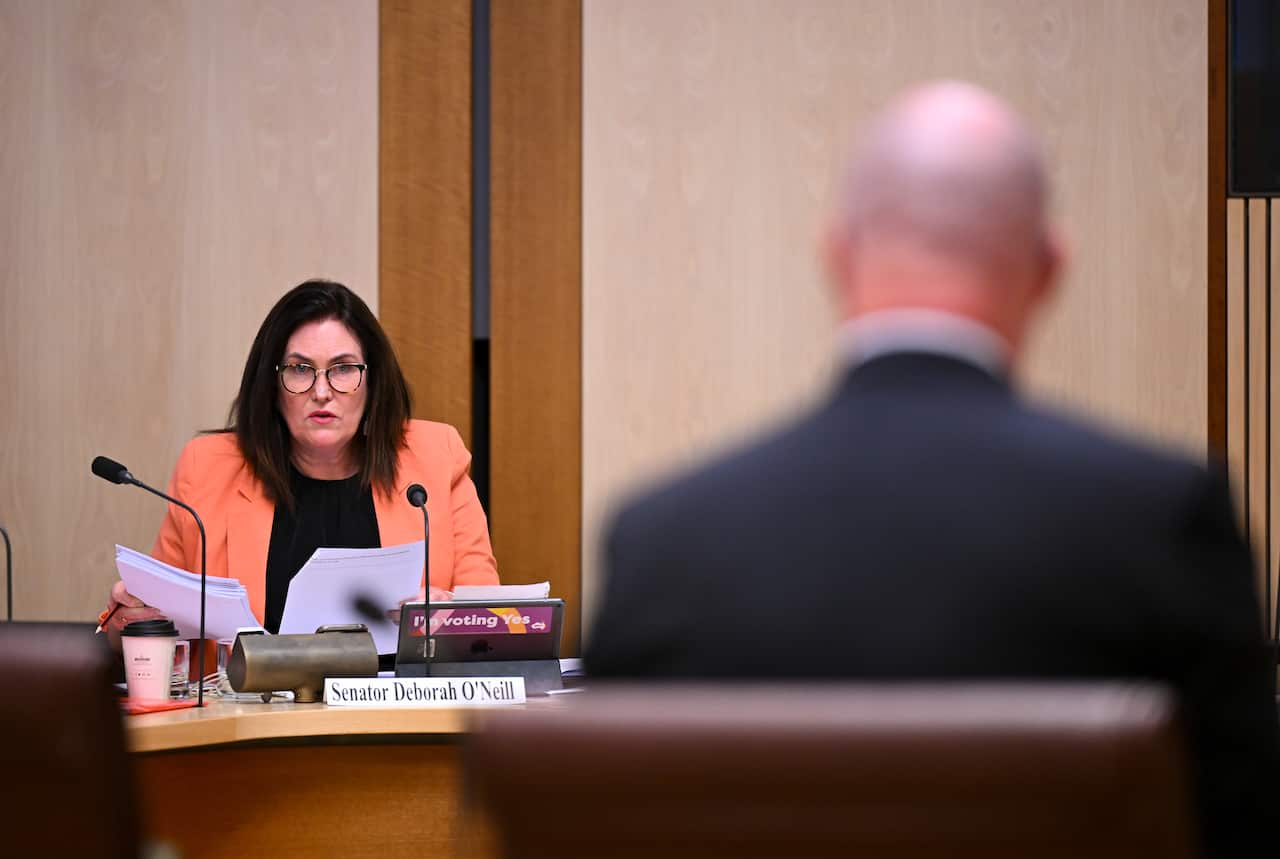This article contains references to domestic and family violence.
Australians are suffering through a “hidden epidemic” of financial abuse, with calls for a coordinated effort between banks and super funds to combat the issue.
A federal parliamentary inquiry into financial abuse within Australia’s financial services industry on Thursday handed down a report containing 61 recommendations to address the issue, which is rife across the nation.
Here’s what they say needs to change.
What is financial abuse and how prevalent is it?
Financial abuse involves a person exerting control over their partner or family member’s finances, threatening their financial security.
About 1.6 million women and 745,000 men suffered from partner economic abuse in 2021-22, according to the Australian Bureau of Statistics.
The cost of the abuse to victims was $5.7 billion in 2023.
Labor senator Deborah O’Neill, chair of the joint committee on corporations and financial services, said: “Financial abuse is primarily experienced by women and children and is primarily perpetrated by men.”
“It is a quiet but raging epidemic that ruins the lives of those it affects. It has got to stop.”
She said the issue was a “systemic problem” compounded by gaps in laws, a lack of awareness, and complicity within and across financial institutions.
“The report’s recommendations aim to create a coordinated and comprehensive response from government, financial institutions, and the legal system to combat this hidden epidemic,” she said.
What are the key recommendations?
Among the recommendations were requiring lenders and insurers to ensure customers are not experiencing financial abuse, better reporting mechanisms between financial institutions and police, and improved safeguards and support for victim-survivors.
The report said victims who managed their own super funds face severe disadvantages, with shortcomings around the superannuation death benefit system.
It recommended the government amend superannuation laws to prevent perpetrators from receiving death benefits and undertake a review of the COVID-19 early super release scheme to uncover the extent of those coerced to withdraw from their funds.
The Super Members Council welcomed the unanimous multi-partisan push to end abusers receiving their victims’ super after death.
Committee chair Deborah O’Neill described financial abuse as “a quiet but raging epidemic”. Source: AAP / Lukas Coch
“A perpetrator getting their victim’s super death benefit is an extension of the abuse,” Super Members Council CEO Misha Schubert said.
“The sector is united in calling for reform and sending a clear message that abuse is not tolerated in any form.”
The report also recommended the government outlaw abusive descriptions in electronic money transfers and allow victim-survivors to keep certain information hidden from their perpetrators in joint banking and insurance accounts.
Australian Banking Association chief executive Anna Bligh said the sector welcomed recommendations to change privacy laws to allow them to flag financial abuse.
“Significant inroads have been made across the industry over the last decade to better prevent, identify and support customers impacted by financial abuse,” she said.
Another form of financial abuse detailed in the report was the manipulation of the child support system by perpetrators, with victims trapped in situations where payments were weaponised.
The report recommended the government undertake a review of the formulas used to determine child support payments, ensuring the review was informed by the lived experience of victim-survivors.
The report recommended financial institutions ensure that in addition to general training about family and domestic violence, all employees have training in financial abuse that is appropriate to their level and role.
The report also suggested all relevant government agencies provide training to frontline staff on the identification of domestic and family violence, including financial abuse, requiring mandatory reporting of suspected economic abuse.
If you or someone you know is experiencing, or at risk of experiencing, domestic, family or sexual violence, call 1800 737 732, text 0458 737 732 or visit for online chat and video call services.
, operated by No to Violence, can be contacted on 1300 766 491.

